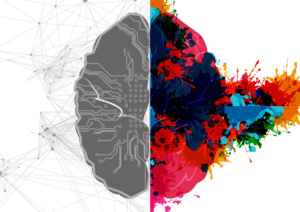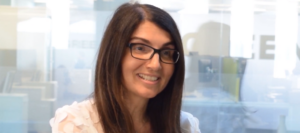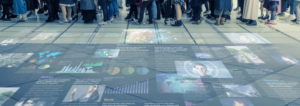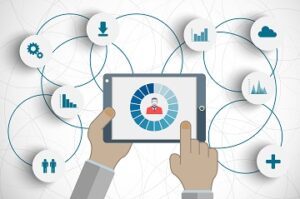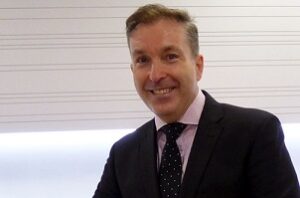Terence Mauri: In trust, we thrive
- 5 Min Read
Terence Mauri challenges leaders to go big on truth, trust and transparency as the ultimate human currencies for taking trust leaps into the future.
- Author: Terence Mauri
- Date published: Apr 12, 2023
- Categories
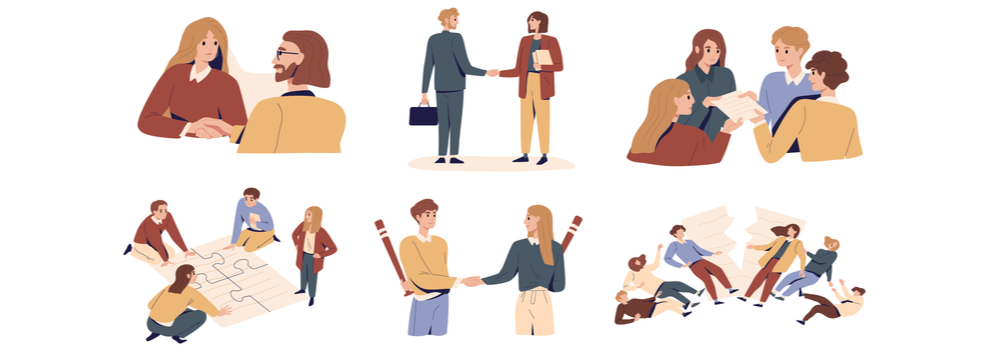
The relentless twin demands of executing for today while reimagining for tomorrow, mean that leaders are grappling with an accelerated phase of business disruption and over $41 trillion of enterprise value at risk, but is enough being done to sharpen the Human Trust Agenda?
The writer George Orwell best known for his novels Animal Farm and Nineteen Eighty-Four would have relished these times. Fake news, false facts, meme warfare, data breaches, tainted food, and digital skulduggery. It’s not your imagination. More companies are operating at the edge of ethics and the commercial and human implications of truth decay are significant, with the impact on businesses alone estimated to cost organizations over $7 trillion globally in lost productivity.
According to Hack Future Lab’s Truth Decay study, 10 out of 15 industry sectors have reported a collapse in trust over the last three years, and there are plenty of examples to explain why from the collapse of FTX, one of the world’s largest cryptocurrency exchanges with a market cap of $32 billion to the culture of intimidation and secrecy at Theranos Inc., a biotech startup that was once valued at $10 billion.
AI everywhere
With multiplying and overlapping disruptions on the rise, how can HR and business leaders rebuild years of eroded trust? According to Hack Future Lab, 67% of people do not believe today’s organizations are fit for purpose, and 1/3 of workers believe their job will not exist in a few years, due to AI and automation. The politics of deglobalization and global labor supply problems favors ChatGPT, Bard AI, and the strategy of ‘AI everywhere’ and mentions of AI in investor calls across 9,000 global companies have reached a new high.
Now is the time to replace a ‘wait and see’ strategy with an ‘explore and disrupt’ one.
Money is the currency of transactions and trust is the currency of humans. Trust-focused leaders champion the ‘spirit of trust’ principle by going big on context-setting, direction setting, and sense-making, starting with asking deep human-centric questions that make workers think hard rather than feel good.
- Is trust our #1 value? If not, why not?
- Do we minimize or maximize trust and responsibility?
- Do we commodify or humanize trust?
- Do we obsess over trust, not just metrics?
- Do we make the invisible visceral?
- Do we enable wise trust-based choices, not just the fastest?
- Do we prioritize trust alongside growth and scale?
Trust-focused companies such as Patagonia, Lego Group, and Apple enable workers to explore early-to-exploit know-how sooner and is the secret to a productive, flexible and happy workforce. It is defined by four DELTA’s (Distinct Elements of Trust and Agency) which are:
- Inclusion Trust (Believing and belonging)
- No Fail Trust (Learning and unlearning the always-done ways)
- Challenger Trust (Speak up over silence)
- Team Trust (Co-creation and community)
No fail trust
Transformations don’t fail because of technology. They fail because of sociology and a lack of trust. As organizations transform from doing digital to being digital (global digital transformation spending is forecast to reach 2.8 trillion U.S. dollars by 2025), there is a huge aspiration-to-action gap with 67% of leaders reporting they don’t have the Distinct Elements of Trust and Agency to support their transformation efforts which range from unlocking the Skills Revolution (new pathways to upskilling and reskilling), wellbeing as a central workforce pillar, amplifying equity and inclusivity efforts and building a sustainable future with talent marketplaces and workforce agility.
As global growth stalls and organizations struggle to retain top talent, trust-focused leadership is a source of resilience and future growth. Leaders who want to out-pace the forces of disruption and strengthen human brilliance should reflect on whether their existing cultures, structures and work models are built for trust-focused leadership or fear-focused leadership.
Fear-focused leadership is a way of leading that deters workers to challenge the status quo. It’s fear over freedom and ‘fake’ empowerment over agency whereby workers have the job title but not the power or autonomy to make decisions that matter. It demands deference and downgrades human potential.
Trust-focused leadership is defined as a way of leading that inspires workers to speak up (play to win) over silence (play to lose) and curiosity (great minds don’t think alike) over conformity (great minds think alike). Hack Future Lab’s research shows that 87% of workers can recall a recent example of where they chose silence over speaking up by withholding a question, concern or idea due to a lack of ‘challenger’ trust. Without trust, there’s no learning. There’s no growth. There’s no transformation.
Trust is your leadership multiplier
Leaders always overestimate the risk of trying something new and underestimate the risk of standing still. The regret of inaction outnumbers the regret of action by 3:1 and two of the biggest regrets are boldness and trust. Let’s not waste one of the biggest reframing moments of our lifetimes. Put trust at the forefront of your leadership, strategy, and purpose, and your customers and talent will put trust in you. Start by asking what ‘Trust Success Headlines’ do we want to be written about us and how will we make trust a central human pillar for humility, learning and growth?



